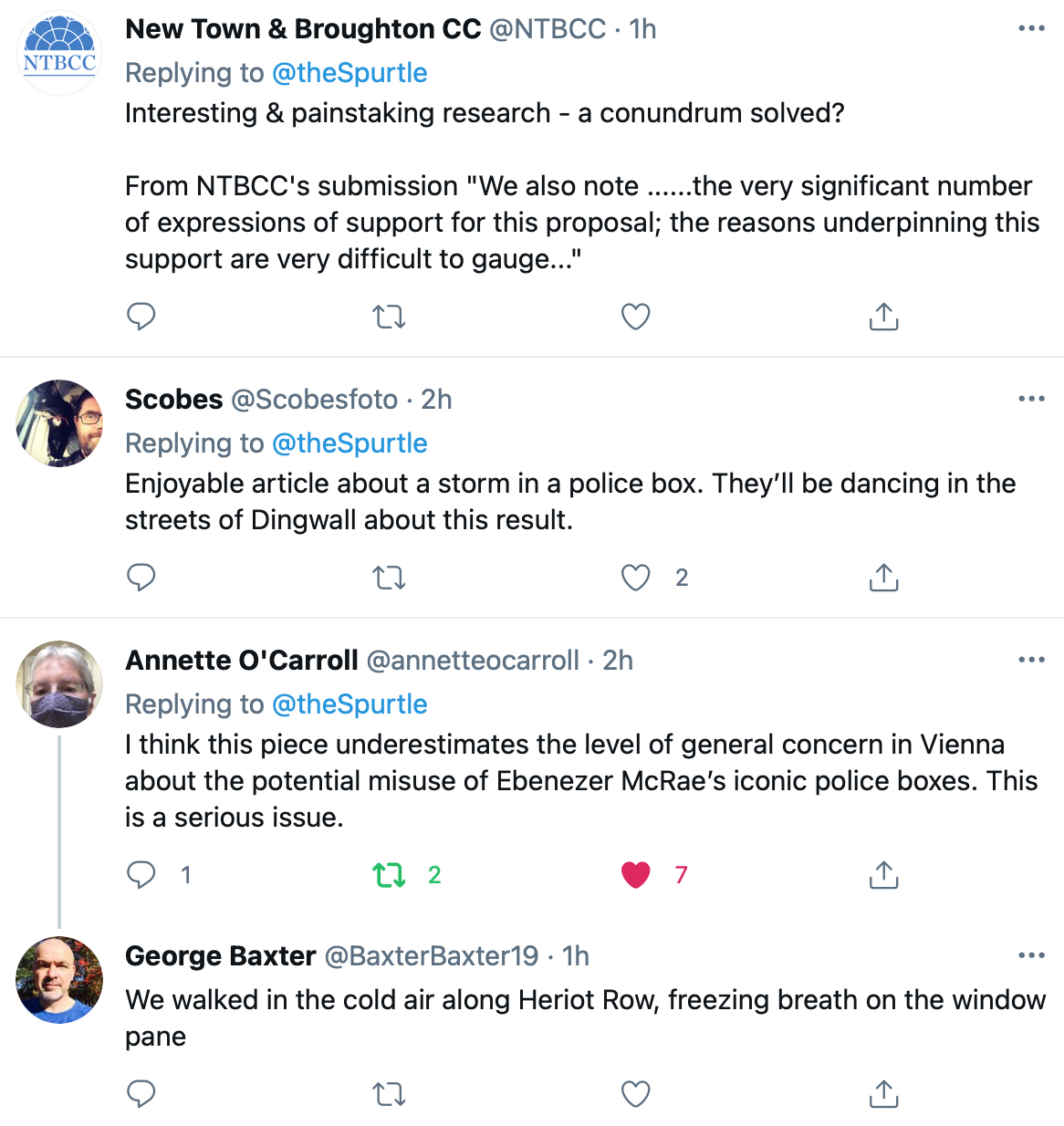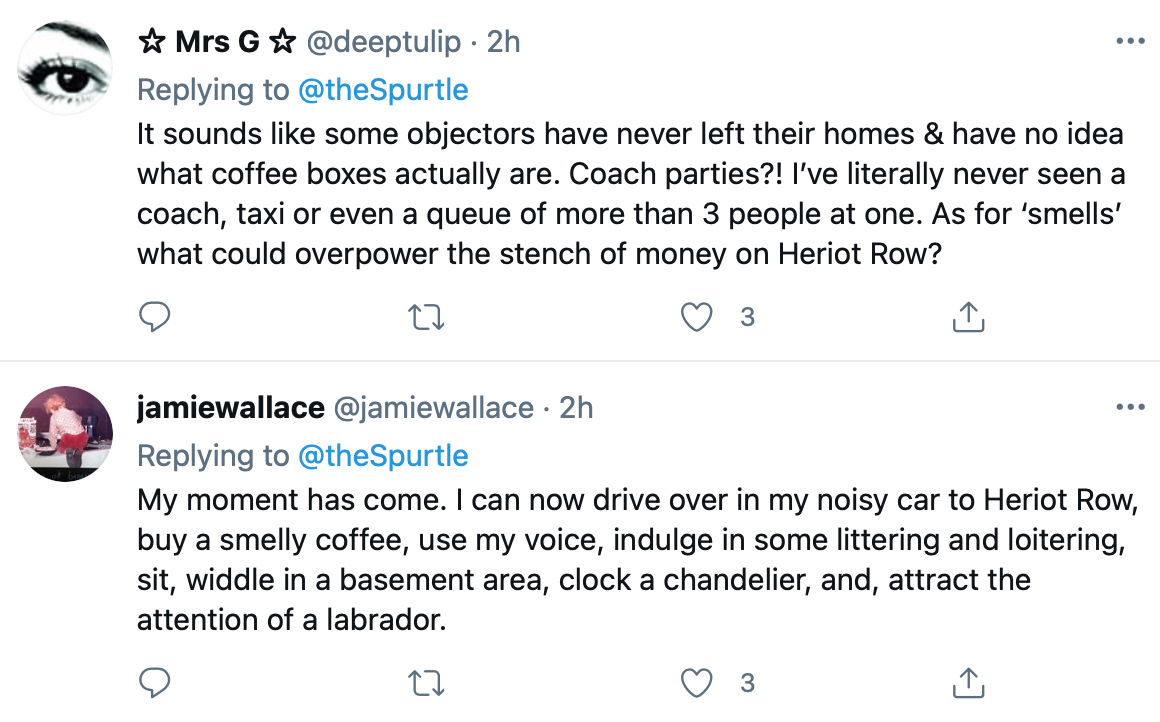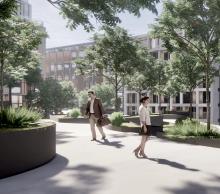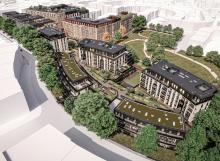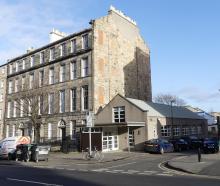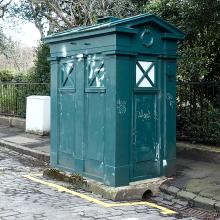
On 17 March, councillors on the Development Management Subcommittee granted permission for the police box on Heriot Row to operate as a coffee and food sale point (20/02262/FUL).
So ended a planning issue which has divided parts of the Second New Town for over nine months.
The decision was explained as follows:
'The proposal complies with the relevant policies of the Edinburgh Local Development Plan.
'The proposal would be an appropriate use in the context of the character of the surrounding area and would preserve both the character and appearance of the New Town Conservation Area and the Outstanding Universal Value of the Edinburgh World Heritage Site.
'The proposal would not have an adverse impact on the unique architectural and historical character of the listed building and would be an acceptable city centre development.
'It would not have a detrimental impact on the amenity of the surrounding area, or raise any concerns in respect to road safety. No other considerations outweigh this conclusion.'
The necessary listed building consent has not yet been applied for, but is likely to be granted. A further licence may be required for use of the pavement and/or carriageway either directly or indirectly associated with the operation of the premises.
Now, all this may strike readers as fairly small beer, but the question has generated powerful feelings. Some 74 people wrote in to object and an astonishing 90 responded with notes of support.
Spurtle was intrigued by this internecine wrangle and researched accordingly.
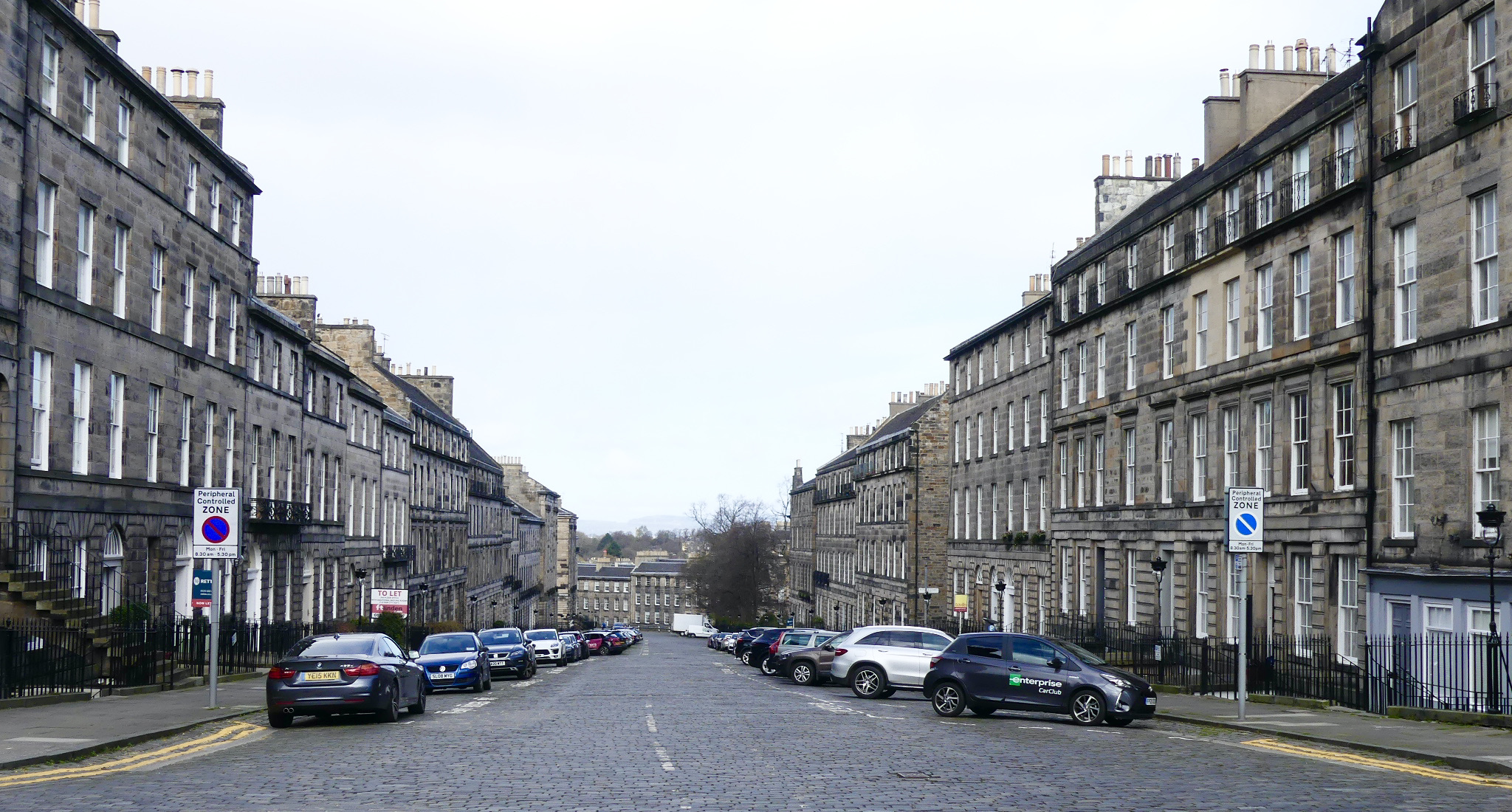
Supporters
There was extraordinary consensus among those favouring the proposal, several of whom even expressed in identical terms their ‘wholehearted support’ for it.
Many backed this emerging small business (and enterprise in general) in difficult times, identifying the west end of Heriot Row as a busy pedestrian route between Stockbridge and the city centre.
Several regarded it as a potentially desirable alternative to large café chains, and a useful outdoor spot in which to refuel and socialise whilst remaining distant from each other (a very Edinburgh pastime even before the pandemic).
It would be an asset, they said, to the locality, and would help to build the community.
Littering would not be a problem around a well-run business, and the new commercial purpose would help fund this heritage structure’s future attractiveness and good maintenance.
In the panel below we break down where the supporting comments originated. Heriot Row and India Street accounted for 7 in total; Gloucester Lane (where the applicant resides), Gloucester Place, and Gloucester Square totalled 18.
For reasons which are unclear but not unimaginable, individuals from Dingwall, Dunfermline, Dalkeith, and Gairloch felt moved to get involved, as did six amazingly vigilant coffee-lovers from Nottingham.
Draw your own conclusions, but it strikes Spurtle that there may possibly have been some degree of coordination involved in eliciting support.
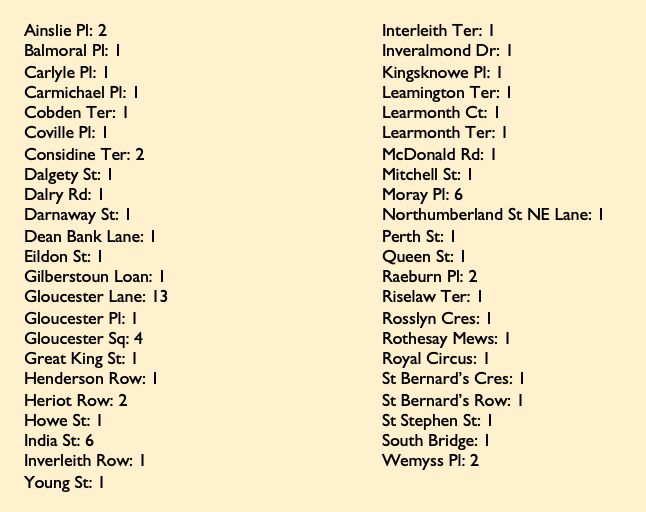
Objectors
There was also extraordinary consensus among those against the proposal, many of whom even expressed in identical terms their ‘strong objection’ to it.
Two local street associations coordinated the cause.
Unmistakeable similarities appeared in wording about the disagreeable prospect of loitering, taxi/coach drivers, litter, and vermin. There was no apparent embarrassment about classing the four together in one breath.
Frequent concerns emerged about the impact on the character and appearance of the New Town Conservation Area. Many locals worried about ‘smells’.
Increased levels of almost any kind of people in this so-far trade-free, ‘high quality residential area’ united locals in opposition. They resented potential: loss of tranquility; queues; voices; lonely kiosk staff listening to the radio; customers accidentally causing disturbance by throwing themselves under passing cars; upticks in windblown paper napkins; people sitting on steps; strangers urinating in basements; passers-by slipping on leaves; illegal parking; coach parties; and the danger to kiosk and customers of flooding.
One local noted, ‘We are also concerned about privacy as the occupants and customers would be able to look into our living and dining area.’ Which strikes the Spurtle as odd since for generations all citizens walking along Heriot Row have nebbed into other people's property as a matter of course, particularly at night when residents leave their curtains open.
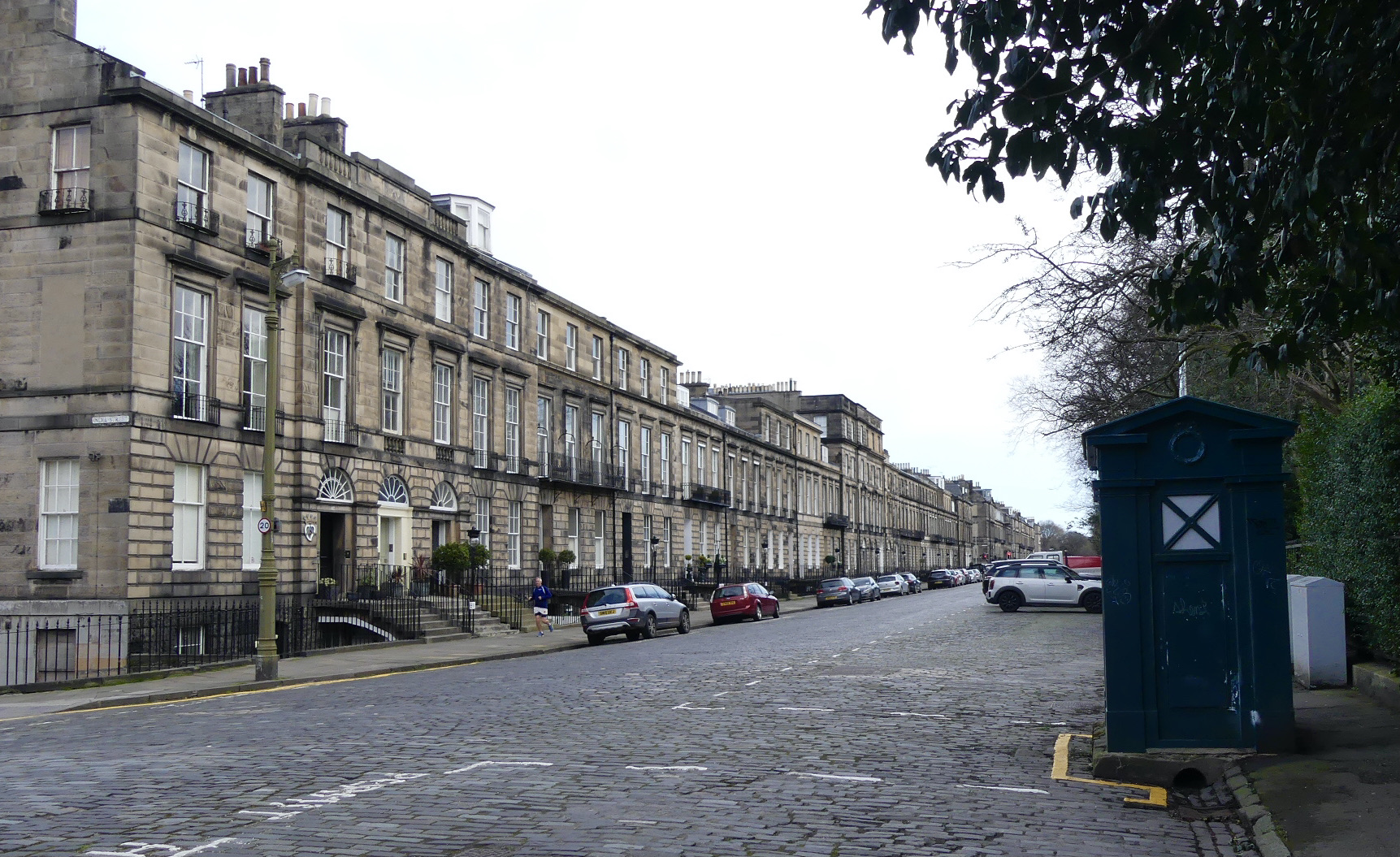
A few worried about (reversible) changes to the listed police box’s structure and colour (from historically inappropriate teal to historically inappropriate dark blue). Others agreed that it was already an eyesore and should be removed altogether.
‘Unless a stand is taken on the principle of maintaining the neighbourhood's residential character,’ thundered one local, ‘the approval of this application would be a stalking horse for others, and yet another part of Edinburgh would slowly degenerate into the tourist theme park and tat shopping arcade which some areas of the city have already become.’
Another observed, ‘I must say an absolute NO to this ghastly idea. This is a very prestigious area and the proposed coffee and food point of sale would only result in noisy cars and vans and possibly a load of litter – also, worst case scenario bringing property prices down. I am shocked that it was even considered.’
Some residents questioned the commercial viability of the proposed business. Others foresaw more specific difficulties: ‘Many locals take their dogs past the police box going into the Queen Street Gardens. It will cause problems to local dog owners as their dogs are likely to be attracted to the food smells and seek attention of those buying food.’ Serious though this potential threat may be, it has never yet been considered a material planning consideration.
One note of objection was confusing:

One objector writing from Links Road wondered whether a recent surge in letters of support ‘was ‘engendered from outwith the local area from people who don’t have to live with the consequences’. Links Road, for those who don't recognise the name, starts in Port Seton.
Where the objections came from
Compared to the comments submitted in support of the application, comments objecting were far more locally focused.
Vienna was the most notable exception.
We list the locations in the panel below.

So what?
Residents should be applauded for taking a stand on neighbourhood issues they feel strongly about. Some will probably now feel disappointed and outmanoeuvred.
To an outsider, though, it seems obvious that both sides in this coffee-kiosk crisis tried to manipulate what they saw as a numbers game, but such efforts are rarely if ever effective.
Planning issues are decided according to narrow planning criteria enshrined in guidance, policy, and law. For the most part, it is the pertinence of submissions to those criteria that counts, a process of accurate analysis and application, not the volume of opinions or the vehemence with which they are voiced.
Got a view? Tell us at spurtle@hotmail.co.uk or Twitter or Facebook
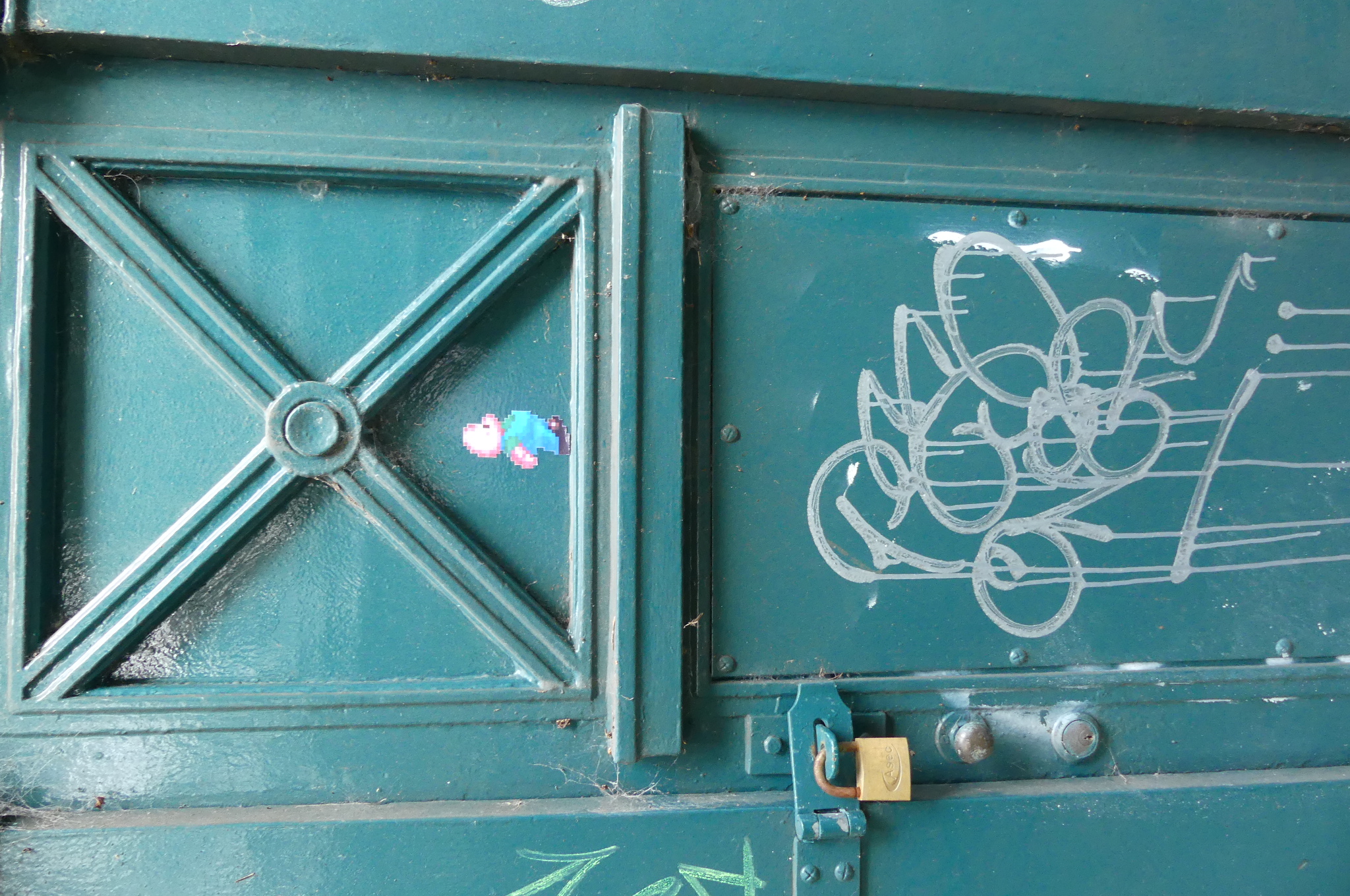 ---------------
---------------

